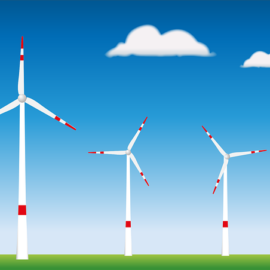
Long-term drought, rising energy prices, a gentler approach to natural resources. Water and its consumption in households are currently once again one of the main social topics. But not all of us approach the problem in the same way. According to recent research and analysis for the Finish brand, women see water waste as a problem more than men and use almost one-tenth less water on average when washing dishes.
Women are more likely to perceive water wastage as a problem
Differences between the sexes are already evident in the awareness of drought or water wastage. A survey by Stem Mark for the Finish brand revealed that 30% of men do not think Czechs waste water, while only a fifth of women share this opinion. The fairer sex also considers the topic of water conservation in the Czech Republic to be important. Two-thirds of women strongly agree. For men it is 56%.
These data are also confirmed by Ipsos analyses. They show that in households with a dishwasher, men are more than 20% more likely to wash dishes by hand instead of putting them in the dishwasher, and they use almost one-tenth more water than women when washing dishes. But when they do use the dishwasher, women are 6% more likely to pre-wash the dishes before putting them in the dishwasher.
“There are over 1.3 million people in the Czech Republic who still pre-wash dishes before putting them in the dishwasher. According to our calculations, they waste water in an astronomical volume of 3.8 billion liters annually, which would fill the largest natural lake in the Czech Republic, Black Lake. This is also why this May we introduced Finish Quantum Ultimate tablets with ActiveBlu technology, which can handle even unwashed dishes. Water can thus stay where it belongs – in the Czech landscape,” says Lukáš Klimek, category manager of Reckitt.
Not me, but the other one
The survey also revealed how we view each other in a relationship. While both genders agreed that they save water in their household (92% of men; 90% of women), their answers differed when asked who specifically manages water better. Only 25% of women identified their partner as a person who saves water. Men perceive their partners this way in 43% of cases.
Both sides also agreed on who saves water the most in the household. Most of them think it’s them. 65% of men and 73% of women said it this way. 19% of men and 13% of women admitted that it would be their significant other.
“A number of studies confirm that women place emphasis on environmentally friendly behavior more often than men. However, this does not mean that men do not think about protecting the environment. Saving water and preventing its pollution are perhaps even more important than ever before at a time when we are facing a climate crisis,” says Yvonna Gaillyová from the Ecological Institute ZO ČSOP Veronica.
The expert advises that, in addition to better water management, we should also devote ourselves to buying things that do not end up in the bin unused, or to only use chemicals when cleaning, washing or washing dishes to the extent necessary.
“When it comes to washing dishes, it’s important to make sure that we don’t thoughtlessly flush the leftovers down the sink. After all, it is not only a waste of water, but also water pollution! It is offered to wipe the plate with bread, the pot with a spatula, greasy residues with paper, which belongs to sorted biological waste,” adds Yvonna Gaillyová.
Men are more involved in environmental projects
Positive news is the attitude of the Czechs to volunteer projects. Almost 75% of those surveyed indicated a desire to be involved in the fight against drought for the first time in their lives. Men dominate the number of those who have already put their hands to the work. One in five said they had already volunteered to help fight the drought as part of environmental projects. For women, this is one in nine.
The Finish brand is also dedicated to projects to improve the water situation in the Czech Republic, which together with the Czech Association of Nature Conservators launched a long-term initiative in the Czech Republic called Water for the Czech Landscape. Its goal is the revitalization of the Czech landscape, which will contribute to the retention of water in the soil, and public education aimed at reducing water consumption in households.
This year, as part of the Water for the Czech Landscape project, in addition to other activities, field work has already been carried out in the landscape of the upper Polabí near Hořiněvsi and is planned for the V Krejdách locality near Žďár nad Sázavou by the end of the year. From the beginning of next year, the cooperation will focus on a more extensive revitalization of the landscape around the Blaník mountain. In October of this year, Reckitt employees also participated in the maintenance of selected water bodies.



